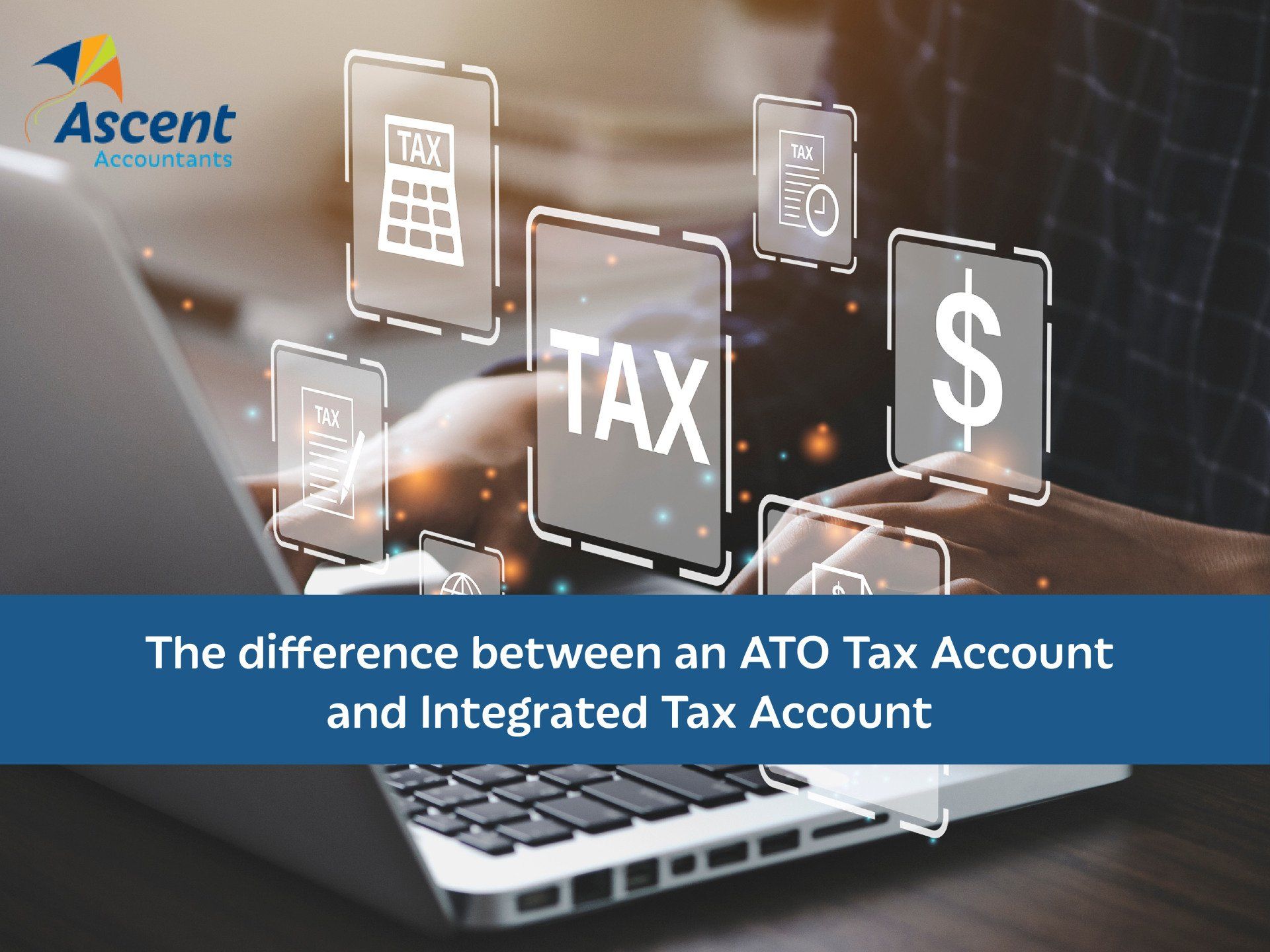The difference between an ATO Tax Account and Integrated Tax Account

The difference between an ATO Tax Account and Integrated Tax Account
As you may already know, the ATO offers different accounts for their clients. Two in particular are often confused with one another — an ATO Tax Account and an Integrated Client Account. As an accounting firm, we’re here to clear the air, and clearly explain the differences in each.
What does ICA stand for ATO?
Integrated Client Account.
An Integrated Client Account (ICA) is an account for taxes other than income tax, such as GST and PAYG. The ICA account is also called the activity statement or integrated client account, depending on the system you're using with the ATO. If you click on the activity statement account link, you will see a statement of account.
ATO Tax Account.
An ATO Tax Account (ATOTA) deals with the preparations of tax returns and tax payments.
An ATO Tax Account
What is it?
Tax accounting is a niche type of accounting that deals with the preparations of tax returns and tax payments. Tax accounting is used by individuals and businesses and is done through the ATO, using an Income Tax Account (ITA).
Accessing your ATOTA.
You can access your ITA online through myGov, once your myGov account is linked with the ATO. It’s the easiest way to check your outstanding balance (if any) and see when your payment is due.
An Integrated Client Account
What is it?
An Integrated Client Account (ICA) is an account for taxes other than income tax. It also shows your business’s lodgment behaviour, such as a payment history to the ATO and any outstanding debts. One of the reasons the ATO needs this to help lenders, and business owners, make informed and fair lending decisions.
You’ll also need this if you have non-salary income, pay GST, and/or employ staff and pay pay-as-you-go withholding. The full list includes:
- goods and services tax (GST)
- goods and services tax instalments
- pay as you go income tax withholding (PAYGW)
- pay as you go income tax instalments (PAYGI)
- fringe benefits tax (FBT) instalments
- luxury car tax (LCT)
- wine equalisation tax (WET)
- fuel tax credit (FTC)
- deferred company instalments
- franking deficit tax and over franking tax for 2003 and future income years
- petroleum rent resource tax (PRRT)
- sales tax credits
More on pay-as-you-go instalments.
One component of your ICA is PAYGI — payment of tax in advance for the current year, based on the tax payable in the last tax return lodged. Rather than a large lump sum payable on your tax return, you pay smaller quarterly installments. The ATO has designed this to help you avoid a huge bill at the end of the financial year, and help make the payments more manageable.
You can see this when looking at your ICA.
Accessing your ICA.
You can see all your ICA information using your myGovID — this is just for businesses and different to myGov. Your myGovID must be linked to your business by connecting it with your ABN (using these steps). Once the myGovID has been linked to the ABN, you can grant access to others — such as tax agents and accountants like ourselves — by using the Relationship Authorisation Manager. Here are the details.
Want to go deeper?
Seeing as we’re edging closer to tax time, it’s only fitting that you’d want to know more about your ICA and ITA. We can explain the differences and applications in more detail when you engage one of our services. Contact us to get started.
Need help with your accounting?








